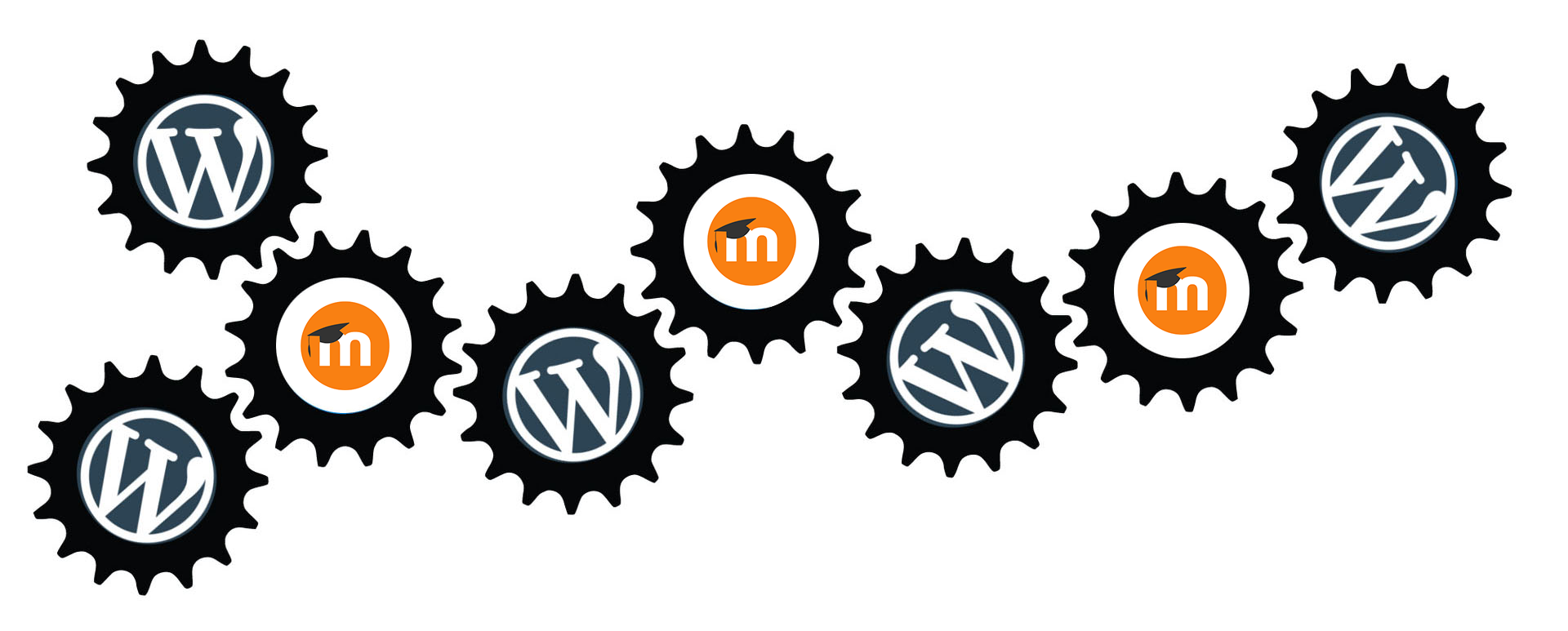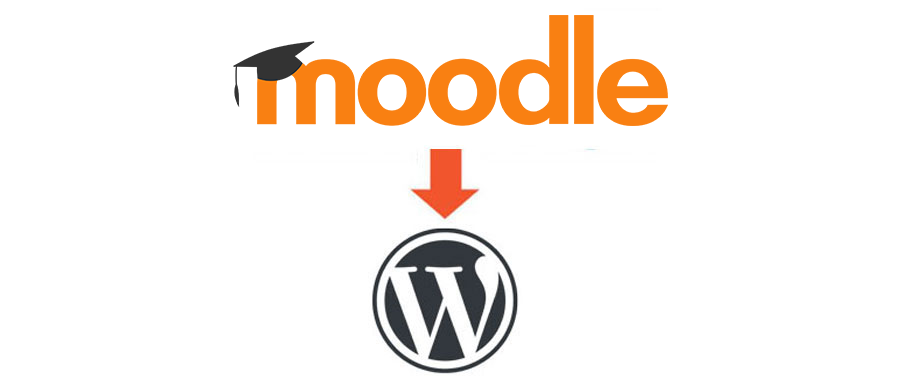WordPress and Moodle are two different types of platforms, but they share some similarities. WordPress is primarily a Content Management System (CMS) that is used to create and manage websites, while Moodle is a Learning Management System (LMS) that is used to create and manage online courses.
WordPress is a popular CMS primarily used for creating and managing websites. It is flexible, user-friendly, and has a wide range of plugins and themes available that allow users to add various features and functionalities to their websites. WordPress is commonly used for blogs, e-commerce websites, portfolios, and more.
Moodle, on the other hand, is a CMS designed specifically for creating and managing online courses. It offers tools for creating and organising course content, managing users, tracking progress, and administering assessments. Moodle is commonly used in education and training settings and is ideal for organisations that need to deliver online courses and training programs.
Why migrate your Moodle LMS to WordPress?
There could be several reasons why a business may consider moving from Moodle to WordPress:
- Simplified Website Management: If a business wants to combine its course content with its existing website or wishes to simplify the management of its website and online courses, then WordPress can be a good option. WordPress is primarily a CMS that offers robust website management capabilities, and it also has plugins that enable it to function as a simple LMS. By moving from Moodle to WordPress, a business can have one platform for managing both its website and course content.
- Familiarity with WordPress: WordPress is one of the most popular CMS platforms, and many people are already familiar with its interface and functionality. If a business has an existing WordPress website and wants to add online courses to it, moving to a WordPress-based LMS can make the transition smoother.
- Cost: While Moodle is an open-source LMS, it still requires significant resources to set up and manage, particularly if a business requires customisations or integrations. In comparison, WordPress is easier to set up and maintain, and its plugins can provide LMS functionality at a lower cost.
- Flexibility and Customisation: WordPress offers greater flexibility and customisation options than Moodle, allowing businesses to create custom designs, integrate with third-party tools, and add advanced functionality. By moving to WordPress, a business can benefit from a broader range of customisation options.
- User Experience: WordPress offers a user-friendly and intuitive interface, making it easier for learners to navigate through courses and engage with content. By moving to WordPress, a business can improve the user experience for its learners.
What LMS plugins can be used to migrate content from Moodle to WordPress?
There are several WordPress LMS plugins available that can be used to migrate content from Moodle to WordPress. Some of the most popular WordPress LMS plugins are Namaste! LMS, LifterLMS, Good LMS, WP LMS, LearnDash, Sensei, Education LMS, CoursePress, LearnPress, MasterStudy LMS, Masteriyo, MemberPress, Thrive Apprentice, Tutor LMS, WP Courseware, Academy LMS, EduPro and more.

Why hire a specialist when migrating from Moodle LMS to WordPress?
Migrating Moodle to WordPress can be a challenging process. Engaging a WordPress specialist such as CircleBC to assist with Moodle migration can help ensure a smooth, efficient, and successful migration process, and can help your organisation realise the full benefits of using WordPress as an LMS.
Engaging a WordPress specialist to assist with Moodle migration can offer several benefits, including:
- Expertise and Experience: WordPress specialists have extensive experience in setting up, configuring, and managing WordPress installations. They also have experience in migrating content from other platforms, such as Moodle, to WordPress. By working with a WordPress specialist, you can ensure that the migration process is smooth and efficient and that any issues or challenges that arise during the process are resolved quickly and effectively.
- Customisation and Integration: WordPress specialists can customise and integrate plugins, themes, and other third-party tools to meet your organisation’s specific needs. They can also ensure that the migrated content is properly integrated into your new WordPress site and that it functions as expected.
- Reduced Downtime: A WordPress specialist can work quickly and efficiently to migrate your content from Moodle to WordPress, which can reduce the amount of downtime that your site experiences during the migration process. This can help ensure that your site remains accessible to users and that you do not experience any significant disruptions to your business operations.
- Post-Migration Support: After the migration is complete, a WordPress specialist can provide ongoing support and maintenance services to ensure that your site continues to function smoothly and efficiently. They can also offer training and support to your team to ensure that they understand how to use the new WordPress site and take full advantage of its features and functionality.
If you are looking to migrate your Moodle LMS to WordPress, if you don’t have the inhouse resources to complete the migration for you, we can manage the process end to end, our team of WordPress experts will ensure that conversion is done correctly, quickly, and efficiently, and that the website is working properly on the new platform. It can also provide the peace of mind that the website will be secure and that you have ongoing wordpress support.
CircleBC has helped businesses throughout Australia, including Sydney, Brisbane, Melbourne, Adelaide, Perth, Canberra, Hobart and Darwin with WordPress Website Development and Support.
If your business is located in New South Wales (NSW), Queensland (QLD), Victoria (VIC), Western Australia (WA), South Australia (SA), Australian Capital Territory (ACT), Tasmania (TAS), Northern Territory (NT) and need to convert your Moodle LMS to WordPress give the team at CircleBC a call, the initial consultation is complimentary and obligation free 1300 978 073.

